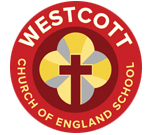Music
Intent
I think music in itself is healing. It’s an explosive expression of humanity. It’s something we are all touched by. No matter what culture we’re from, everyone loves music. Music washes away from the soul the dust of everyday life – Billy Joel.
Our music curriculum has been designed to inspire a life long passion for music. At the same time as developing creativity, we want all pupils to gain an understanding of musical traditions, styles and cultures. All pupils are given the opportunity to express themselves through music. As a Church of England School, music is a vital component of our worship and those times when we come together with our community. Our music curriculum allows pupils to express themselves through music by developing their skills and knowledge in musical disciplines of listening and critiquing, singing, instrumental work, performing and composing.
Implementation
The musical content and skills are organised into units of work. The units of work enable children to understand musical concepts through a repetition-based approach to learning. Learning about the same musical concept through different musical activities enables a more secure, deeper learning of musical skills. By teaching the interrelated dimensions of music simultaneously, pupils will build on knowledge and skills taught previously.
In EYFS, music the content is introduced in simple songs, rhymes and games to enable pupils to experience a discrete music session, with the songs and resources also being accessible in the environment.
Singing is at the heart of Key Stage 1, with songs and chants underpinning all areas of study. Repetition of techniques is vital to consolidate and gain confidence. Pupils will create music through improvisation and they will also start to learn some simple compositional techniques and structures to prepare them as they move into Key Stage 2.
In Key stage 2, pupils will encounter music by living composers and see composition as a current art form. Repetition of techniques is vital to consolidate and gain confidence, and songs, chants and listening repertoire are suggested as a starting point. Pupils will continue to internalise key musical skills and techniques through a range of activities including call-and-response songs and chants, improvisation, movement and active listening. Pupils will create music through improvisation, exploring how to write music for a specific purpose, and they will start to learn more sophisticated compositional techniques and structures.
Weekly classroom music forms the basis of an entitlement for all pupils, which includes whole class instrumental teaching.
Impact
Pupils will be enthused and excited about music, and will have skills to express themselves as a listener, creator or performer. Pupils will be able to:
- discuss music and comprehend its parts using musical vocabulary
- recognise a diverse range of musical styles
- name and know about composers from the past and present
- sing and perform in unison and in parts with increasingly technical accuracy
- find the pulse, add rhythms and create melodies
- use non standard and standard notation
